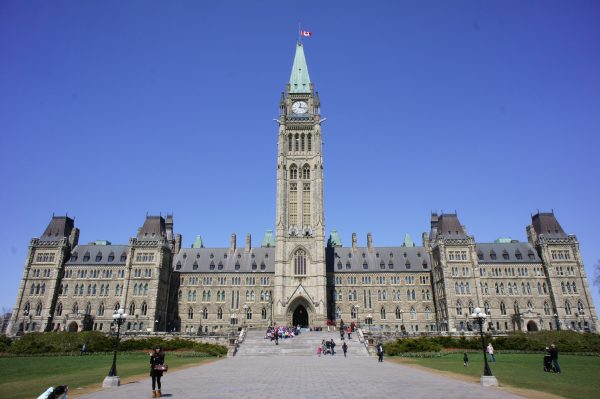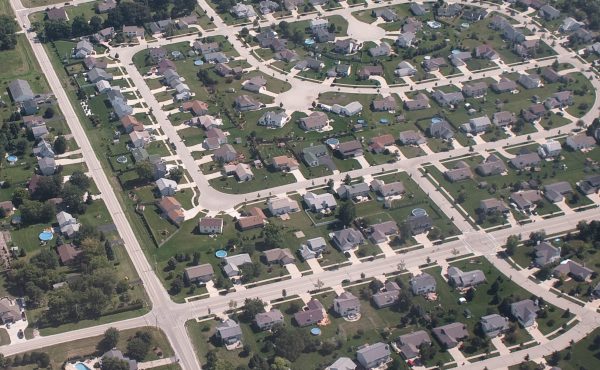There’s nothing even the least bit surprising about the fact that cities, or urban affairs more generally, have had so little play in the federal election.
Yes, all three major parties talk about housing and housing affordability. Both the Conservative and the Liberals have unveiled crime agendas. In fact, Pierre Poilievre’s stump speeches, which already suffer from a deficiency of anything besides slogans, have evolved in recent days into something of a tough-on-crime greatest hits playlist (here, here and here).
Mark Carney, in turn, talks occasionally about infrastructure, but his focus is on the “trade-enabling” variety, such as ports, railroads and inland terminals.
Even Jagmeet Singh’s NDP, which have a long tradition of pushing local issues like transit and energy efficiency into the national political discourse haven’t offered up much in the way of urbanism, sticking instead to political wheelhouse issues, such as universal healthcare.
The NDP, it should be said, anted up the most specifically urban pledge so far — a promise to bring in national rent control as a means of reining in the excesses of an increasingly financialized rental sector. The policy certainly targets millions of tenants. The problem is that there is no world in which the federal government could legally implement it.
Otherwise, there’s been virtually no discussion about some of the more city-focused elements of federal jurisdiction — funding for the arts, research in post-secondary institutions, private sector innovation, and immigration, which has, unfortunately, become an exceedingly delicate topic in the aftermath of the Liberal government’s moves following the pandemic to raise the caps on the annual intake of temporary foreign workers and international students.
Nor has municipal infrastructure funding emerged as a talking point, which is problematic because both the Liberals and the Tories want local councils to slash development charges, which can only happen if they commensurately boost transfers for capital outlays like roads, transit and water/wastewater systems.
For the past two decades, Ottawa — through different governments — has offered up various infrastructure spending programs, some of which are cost-shared with the provinces and others which involve direct transfers to municipalities via a gas excise tax. No one’s suggested eliminating these, but nor have the leaders discussed how they’d alter, improve or cut these funding streams.
According to several polls, the top-of-mind issues in this campaign — which is so very different than any other federal election in living memory — are Donald Trump and the Canada-U.S. trade relationship, housing affordability, and health care, especially the shortage of family physicians.
In the case of the latter two, the distinction between the way they play in urban and rural settings has largely vanished. Not so long ago, the family doctor issue was felt most keenly in rural areas and small towns, but it has roared into large urban centres as well. Similarly, high housing costs, post-pandemic, are no longer unique to big cities.
Trump’s bewilderingly destructive trade and tariff agenda for sure will have a powerful impact on certain city-regions — Windsor, obviously, as well as Greater Toronto/Hamilton, with its five auto assembly plants, high-tech manufacturers and steel plants. Yet Trump’s trade war also strikes at prairie farmers and the rural communities around Quebec’s aluminum smelters. It is, to state the incredibly obvious, a national crisis that demands long-term national solutions, such as the development of east-west electricity grids and new trade corridors.
I’d argue that there’s a policy space between these binaries that’s being overlooked (at least, as of this moment before the parties have released their full platforms).
So, three urban-ish policy ideas, here for the taking:
- Low carbon housing. The broad political consensus around the need for more affordable housing points to a huge clean energy opportunity, which is constructing new homes/apartments that have been weaned off natural gas in favour of heat pumps, geothermal and/or other renewables. If the government is going to support construction, it can add low-carbon as a condition of funding, with the dividend that the operating cost for such dwellings will be less burdensome in the future. Such a provision also creates work for HVAC contractors and equipment dealers and, happily, will reduce Canada’s greenhouse gas emissions.
- Brain gain. The Trump Administration’s senseless attacks on science and higher education represent a massive opportunity for Canadian universities and research labs. Ottawa should move quickly to increase research council budgets and boost funding for programs such the Canada Research Chairs in order to achieve two goals: one, attract U.S. academic refugees and, two, improve the funding envelopes for Canadian researchers, especially young scholars.
- Financial equity for tenants. Homeowners for decades have benefitted from a tax break not available to renters, which is the lifetime capital gains tax exemption on the sale of a principal residence. If you own a home or a condo, that windfall makes up a significant chunk of your retirement nest egg. Tenants have no comparable benefit, which goes some distance in explaining the vast wealth disparities between renters and owners. The federal government could rectify this patently unfair system by providing tenants with additional contribution room in their RSPs and TFSAs, thus enabling them to save more for retirement than owners with similar salaries. Down the road, this measure would reduce public expenditure because fewer tenants would retire into poverty, with all the associated costs.
UPDATE:
The Liberals and the NDP both released their costed platforms over the weekend.
The Liberal plan has little in the way of explicitly city-focused measures, but does propose to incent municipalities to cut development charges in half for multi-unit residential housing. “These revenues,” the document states, “will be offset by federal investment in housing infrastructure like water, power lines, and wastewater systems. The platform envisions funding for rural transit — which presumably means doing something to address the loss of inter-city bus routes. It include a promise to introduce a type of share structure that is meant to drive capital to tech start-ups, add incentives to prevent the loss of Canadian patents to off-shore investors and more funding to attract U.S. researchers who have lost funding due to the Trump administration’s attack on higher learning.
The NDP plan includes a commitment to double public transit ridership by 2035, with new funding for transit operating budgets, a home energy retrofit program geared at 2.3 million low-income households, and a “Housing Insecurity Prevention Benefit” to help 50,000 homeless individuals find housing. The NDP has also pledged to make the 2025 election the final first-past-the-post race, an echo of one of former Prime Minister Justin Trudeau’s 2015 promises, which he famously broke not long after taking office.
As of April 21, the Conservative Party has yet to release a costed platform, with party officials pledging that the document will land within days.





